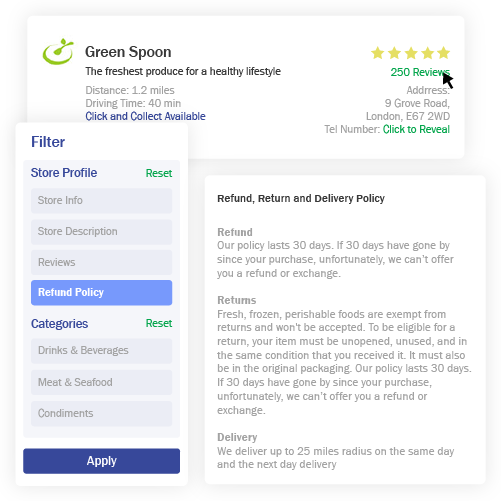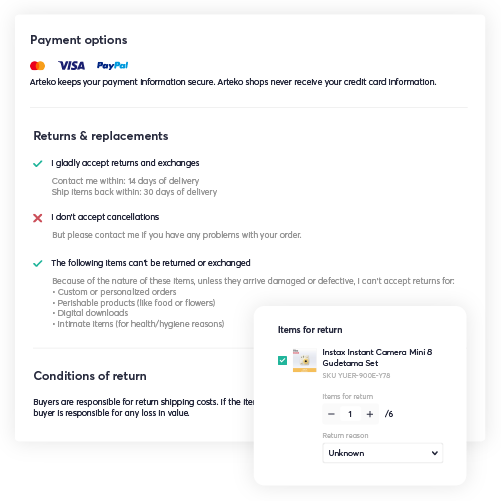Buyers return items for a variety of reasons, e.g. wrong or damaged products, incorrect sizes, or bracketing (ordering multiple sizes or styles of an item). As e-commerce grows, so has the impact of good returns management. 96% of customers have rated a low-friction returns experience as reason to use an online retailer again.
Returns cost money though. Marketplaces have to balance their bottom line with keeping customers happy. Proactive strategies, like a well-managed order system, accurate product descriptions or leveraging data to manage serial returners, can help to decrease returns.
Our client, Grosa, lets each merchant set and manage their own return policies, which can be accessed on their shop profile pages. Alternative approaches include assigning different policies to product categories or implementing a blanket policy for the whole platform.
Some marketplaces impose restrictions on sellers’ return policies. For example, limiting refunds on cancelled orders to either full, partial, or zero options. Another example would be to restrict returns to a specific period (e.g. fourteen days) after delivery.
Do you have a list of features in mind?
We can help you select and implement the right features for your marketplace.

